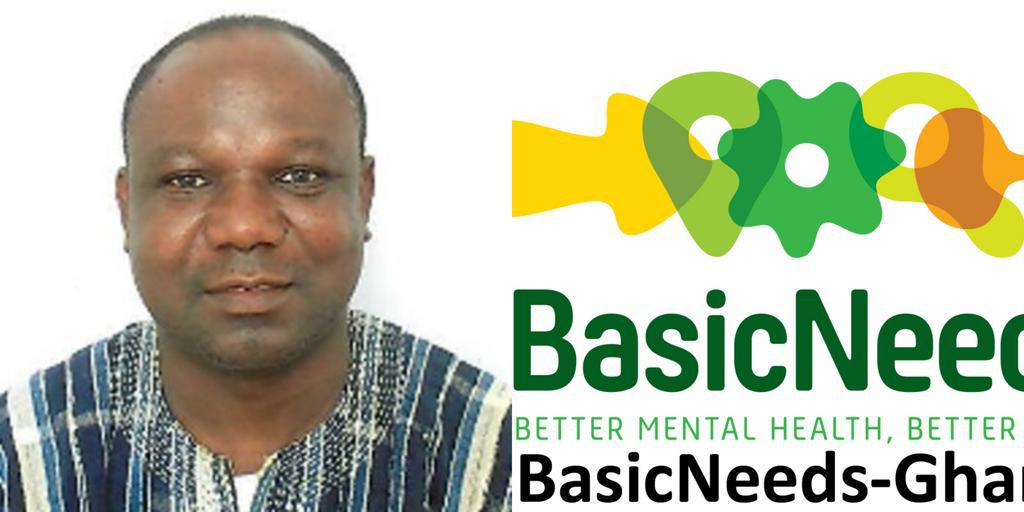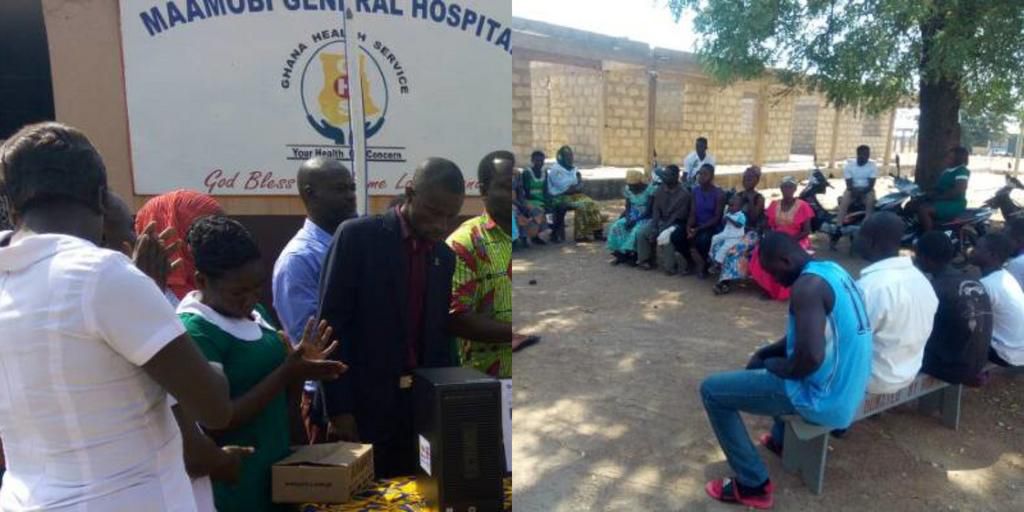Covid-19: Mental health cases in Ghana likely to shoot up, says NGO
)
Basic Needs-Ghana, a mental health advocacy organisation that provides people with mental illness and epilepsy are able to access mental health treatment and live and work within their communities.
According to its Executive Director Peter Badimak Yaro, the way the coronavirus broke out and took the world off-guard, and the devastation it has caused and continues to, there is a high potential of a huge increase in mental health conditions.

“There is every indication that COVID-19 will have a serious psychosocial impact on populations,” Mr Yaro told Pulse Ghana. Ghana needs to take advantage to invest more in mental health, to pay more attention to mental health than just test kits to test for coronavirus to do more to include investing and promoting mental healthcare.
Although the said potential increase in mental health conditions will not be exclusive to Ghana alone, the N.G.O. explained that the reason why the country must pay particular attention to the situation is the fact that its mental healthcare delivery system already leaves much to be desired.
READ ALSO: Mental Health Authority out of funds
If even the government didn’t think mental health is important, because of responding to COVID-19, they should begin to do that, because it is part of the comprehensive care to address COVID-19 issues and I would encourage that government continues to invest in mental health which has suffered poor investment because of lack of attention.
With the magnitude of mental, emotional and economical torment the coronavirus pandemic has brought on individuals across the world aside from what nations and organisations have suffered and continue to suffer, Basic Needs Ghana’s claim may not be farfetched.
Globally, countries and their economies including both private and state-owned organisations have been brought to their knees. Spare a thought for the individuals who own those collapsed companies and their employees whose sources of livelihood have been shuttered.
To even worsen their plight, some of them lost their loved ones painfully in addition and could not have the luxury of paying their final respect to them because their remains had to be buried by health officials in a controlled way to prevent further spread of the COVID-19.
People who hitherto went out to do menial jobs to make ends meet have had to stay home for as long as it takes to avoid an invisible enemy. As bread and butter issues get tougher and tougher, boredom, stress, distress and anxiety are likely to set in.
With all the above-mentioned issues, it is clear that even if COVID-19 loosens its grips on the world eventually, the next challenge will be a likely surge in mental health issues.
Although various countries are beginning to lift restrictions on movement and opening up their economies gradually, life has not returned to normal yet if at all it will. Not many of the collapsed business will be able to revive because owners may have run out of funds and so on.
Unsurprisingly, the World Health organization has said that the pandemic and its devastations also come with mental and psychological issues that must be taken care of rather than focus solely on fighting the disease.
Community-based care delivery
Basic Needs Ghana has further called on the government of Ghana to depart from its age-old less-effective method of mental healthcare delivery and adopt a community-based approach which has proven to be more effective.

Mental health services in Ghana are available at most levels of care. However, the majority of care is provided through specialised psychiatric hospitals (close to the capital and servicing only a small proportion of the population), with relatively less government provision and funding for general hospital and primary healthcare-based services. The few community-based services being provided are private.
Chief Executive Officer (CEO) of the Mental Health Authority, Dr Akwasi Osei is on record to have said in July 2019 that forty-one per cent of Ghanaians have some form of mental disorders, particularly psychological distress.
Quoting a research conducted by a group of scholars from Yale University in the US and the University of Ghana, Legon, he said the loss of productivity as a result of the problem amounted to 7% of the country’s Gross Domestic Product ( GDP).
Over the years, the Basic Needs Ghana has been carrying mental healthcare delivery to the doorsteps of people who need it in their communities, and it says several independent assessments have shown that it is more effective than the old method.
“We chose that method for the reason that it is more effective than the other methods that are being considered. In the sense that, knowing that mental health is a very stigmatised condition and people living with mental health conditions are very much discriminated, we are of the position that bringing services closer to people who need them is the most effective.
“It is recommended by the WHO that community-based care for people with mental health conditions is the most effective than institutions like psychiatric hospitals,” Peter Badimak Yaro asserted.
READ ALSO: ‘41% of Ghanaians have mental problem’
Although there has been public sensitisation about the need to seek attention at the hospitals for mental healthcare, many people still shy away from treatment due to stigmatisation, the cost involved and other factors.
Mr Yaro explained that taking the care to the people in their community where their treatment and recovery processes are visible is one way of getting rid of the stigmatisation and the cost factor that hinder those who are in need of mental healthcare from seeking it.
“When you take the services closer to them, it encourages many people who have mental healthcare needs mental health service to come forward. It reduces the cost of accessing the service, and it also demystifies the perception of what a mental illness is and how people with mental illness behave. People think that if you have a mental problem, you are very violent, you feel no pain, you eat dirty things, you wear dirty clothes and so.
“When service comes closer and people get the treatment and they see how well they become over time, then people become convinced that it is possible to manage mental health conditions and that people with mental health conditions can become active contributors to their communities if proper care and attention are given to them.”
)
)
)
)
)
)
)
)
)
)
,fit(112:112))
,fit(112:112))
,fit(112:112))
,fit(112:112))
,fit(112:112))
,fit(112:112))